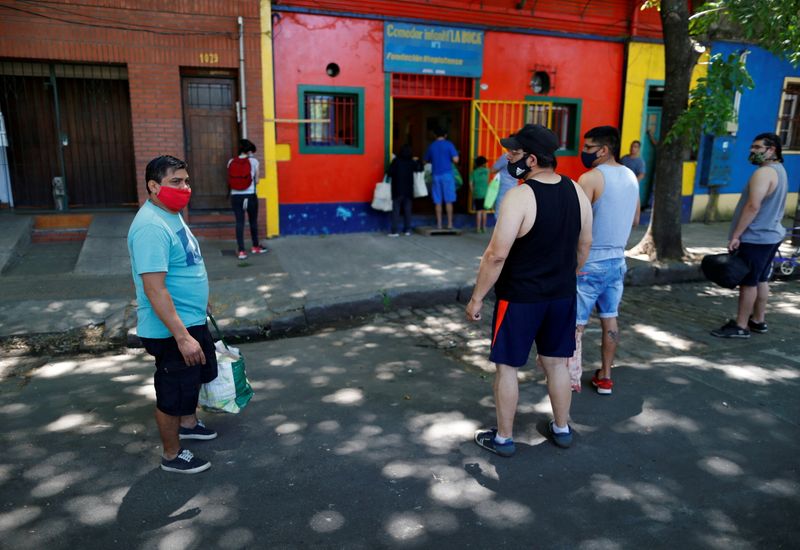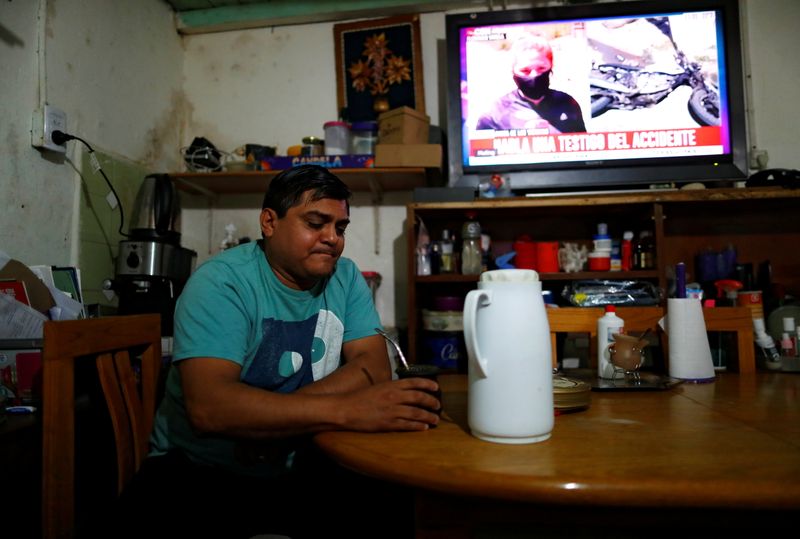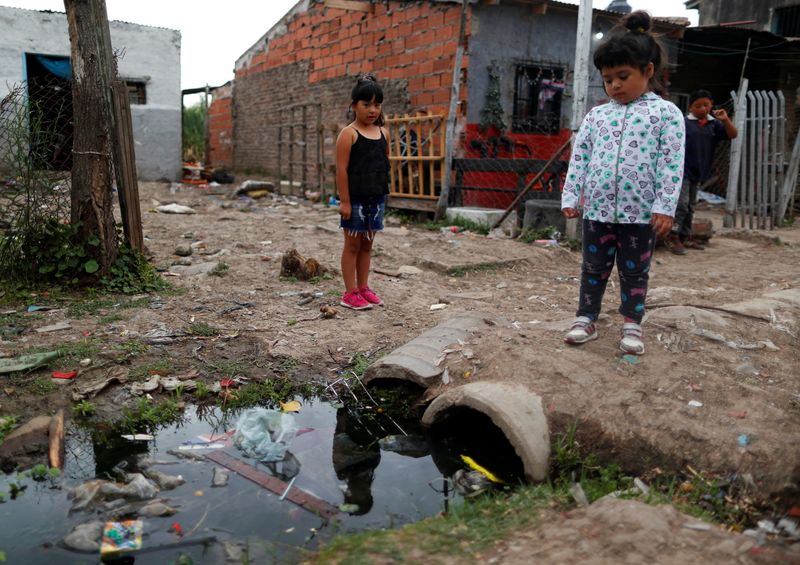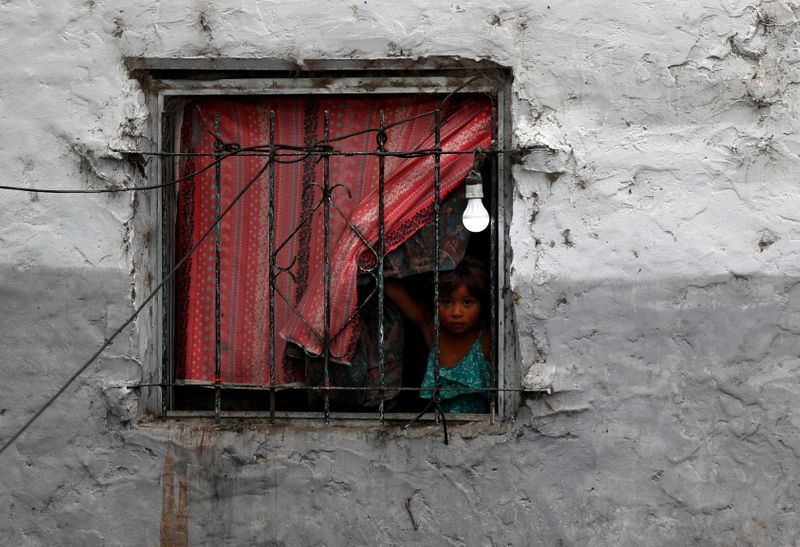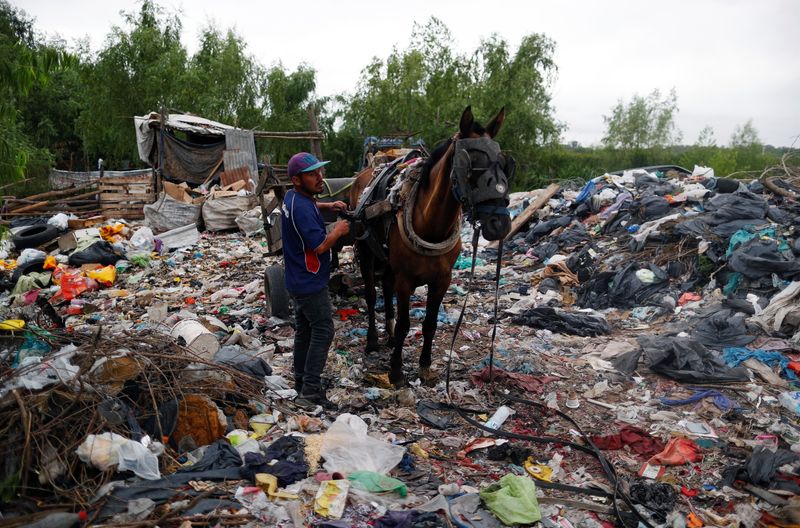BUENOS AIRES (Reuters) -Gustavo Delgado walks every day from his home in La Boca, a hard-scrabble neighborhood of Buenos Aires, to a nearby community pantry to find the only food that he and his family are sure to be able to eat that day.
Office cleaner Delgado, 52, lost his job after the company he worked for went belly-up due to COVID-19. Unable to find a new job, he lives in a small house with his wife and granddaughter. They are three months behind on rent.
“The company forced us to resign and accept the miserably small severance they were offering. That only sustained us for a few days,” he said.
Unemployment rose to 11.7% in the third quarter from 9.7% in the same 2019 period, new government data showed on Thursday.
Argentina’s recession, which began in 2018 due to investors’ distrust of the policies of former President Mauricio Macri, worsened in 2020 due to COVID-19.
President Alberto Fernandez, who took office about a year ago, locked the country down in March. Many of those restrictions have been lifted, but the virus continues to spread, with more than 41,365 fatalities so far.
Poverty, according to the Argentine Catholic University (UCA), increased in the third quarter to 44.2% of Argentines from 40.8% registered in the country a year earlier.
“Much of the increase in poverty is explained as a consequence of the pandemic and the measures that the government used to contain it,” said Juan Ignacio Bonfiglio, researcher at the UCA’s Social Observatory, which managed the poll.
The situation also “impacted on the labor market, particularly on less structured occupations and the informal sector of the economy,” he said.
According to the latest survey of analysts by the central bank, the economy will shrink by 10.9% this year before rebounding by 4.8% in 2021.
(Reporting by Miguel Lo Bianco, writing by Eliana Raszewski and Hugh Bronstein; Editing by Nick Zieminski and Steve Orlofsky)

